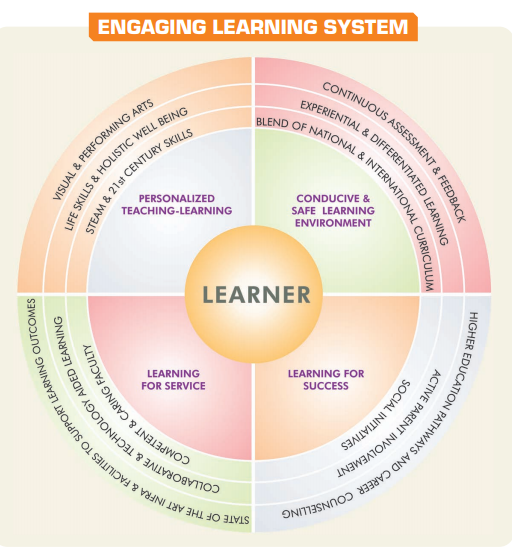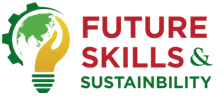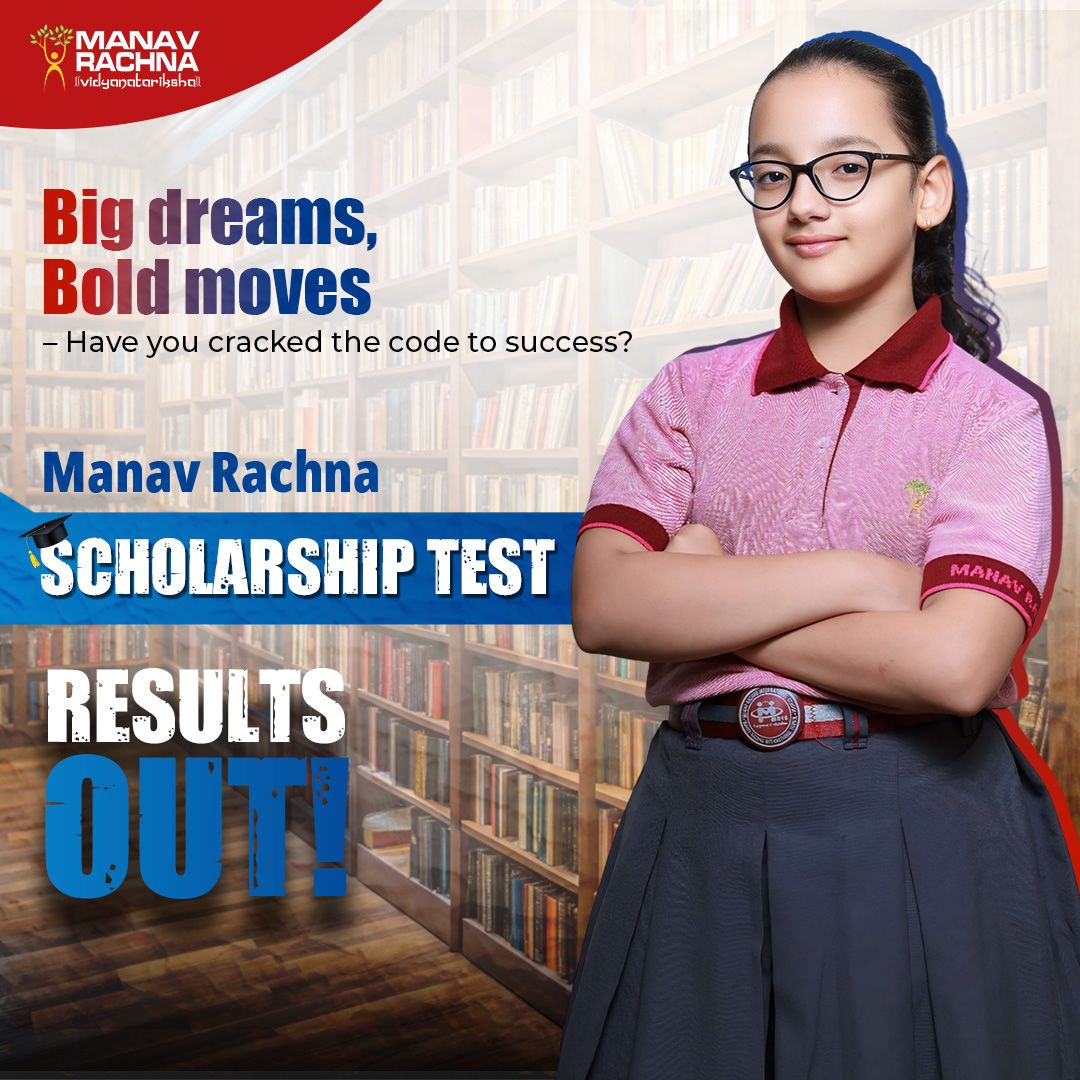
Manav Rachna Schools have a comprehensive curriculum of excellence with global dimension that accommodates diverse learning needs of students and makes teaching learning a joyful experience for students and teachers. Age appropriate learning opportunities coupled with cocurricular activities and the most modern infrastructure support teaching learning in all the schools. The schools look after the diverse needs of the different children and help them achieve the best as per their capacity and potential. Helping children learn-academically, socially, emotionally, spiritually and physically is the real purpose of schools. Children’s learning must respect past, respond to their current & future personal needs, their future career needs & the needs of the varied societies and cultural groups they are likely to play a part, Manav Rachna curriculum is built around all these needs.

 Manav Rachna has always been visionary and forward moving when it comes to education in its schools. Be it introducing tinkering or robotics to its students or coming up with its own GEF publications that focus on conceptual learning or the CREST curriculum or pioneering life skills and the UN sustainability based projects, MRI Schools have always had an edge over others.
Manav Rachna has always been visionary and forward moving when it comes to education in its schools. Be it introducing tinkering or robotics to its students or coming up with its own GEF publications that focus on conceptual learning or the CREST curriculum or pioneering life skills and the UN sustainability based projects, MRI Schools have always had an edge over others.
Taking its learning approach to the next level, MRIS has integrated its unique features into a more holistic program named Future Skills & Sustainability (FS & S) for the Academic Session 2021-22. The basis of this futuristic program is founded in E2030 Position Paper on the Future of Education and Skills, OECD, The Future of Jobs Report 2020, World Economic Forum, UNESCO – Future of Education Initiative and NEP 2020. The program will be implemented through different verticals of Tinkering, Coding & Technology, Media & Design and AgriTech. The verticals are experiential and inquiry based and will be introduced gradually.
The Tinkering Projects in the program which link SDGs and STEM activities will primarily incorporate design solutions, industry connect, entrepreneurship, innovation, SDG plug-ins (economic, social, climate and environmental), self-awareness and values, 21st century skills, life skills.
The chief focus of Coding and Technology will be computer related foundational learning and competence development – age appropriate – for employment from around 2030 onwards. It includes development of computational thinking skills through programming languages, app and web development, gaming technology, AI (Artificial Intelligence) and ML (Machine Learning).
The Media and Design vertical would focus on SDG advocacy through mass communication and ethics, photography and photojournalism, scripting and blogging, radio and podcasting, anchoring and presenting, video production and vlogging, digital media, graphics and web design, and citizen journalism. The connecting educational link between all the verticals is sustainability.
 Conceptual Learning through Reasoning, Exploration, Skill & Technology (CREST)- Inter Disciplinary Curriculum (Science & Social Science)
It aims at instilling 21st Century Learner Skills in children, motivating them to inquire as a means to seeking answers. The effective instructional strategies and pedagogical practices aim to create unique and engaging learning experiences for children.
It gives children the opportunity to explore the world they live in with a sense of sustained awe and wonderment that motivates them to inquire. The child-centered strategies provide opportunities to learn through experimentation, investigation, demonstration and application
Conceptual Learning through Reasoning, Exploration, Skill & Technology (CREST)- Inter Disciplinary Curriculum (Science & Social Science)
It aims at instilling 21st Century Learner Skills in children, motivating them to inquire as a means to seeking answers. The effective instructional strategies and pedagogical practices aim to create unique and engaging learning experiences for children.
It gives children the opportunity to explore the world they live in with a sense of sustained awe and wonderment that motivates them to inquire. The child-centered strategies provide opportunities to learn through experimentation, investigation, demonstration and application Key highlights are as mentioned
Flexible, Joyful, Play Based, Experiential Curriculum
Focus on Socio Emotional Wellbeing and Language Development
Pre Coding Integration
Personalized Inclusive & Equitable Opportunities
Researched Educational Pedagogy followed– by experienced and trained teachers
Parent Involvement
Learning at MRIS progresses under 7 key Learning Areas- Languages & Literacy, Numeracy, CREST (Science & Social Science), Visual Arts, Performing Arts, Sports and Well Being, Life Skills, Future Skills & Sustainability.
3rd Language to the students is introduced in Grade V. Language once chose is compulsorily studied till Grade VIII.
In Grade IX English is a compulsory language and additionally students can choose any one of the other languages (from above) that they have studied
In the Senior Secondary stage streams bifurcate as under
Students are allowed to choose from a number of subject options as per their aptitude, capacity and the career paths chosen.
Theme based smart modules, group work, group discussions, case studies, independent academic workshops, interaction, experimentation, project work, dramatization, technology, industry connect supported whole brain teaching are the tools used to facilitate the teaching – learning process at all stages school level .
